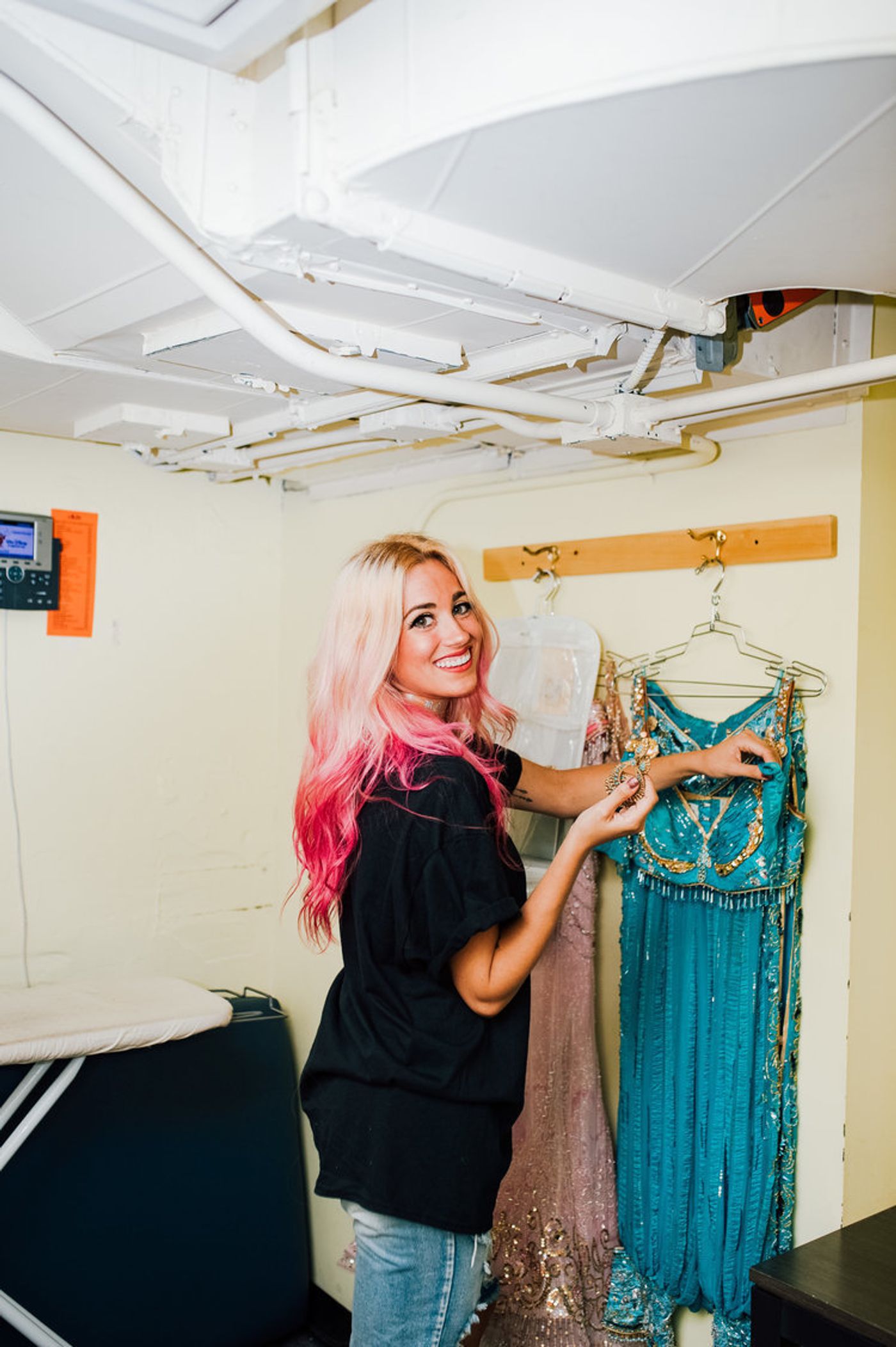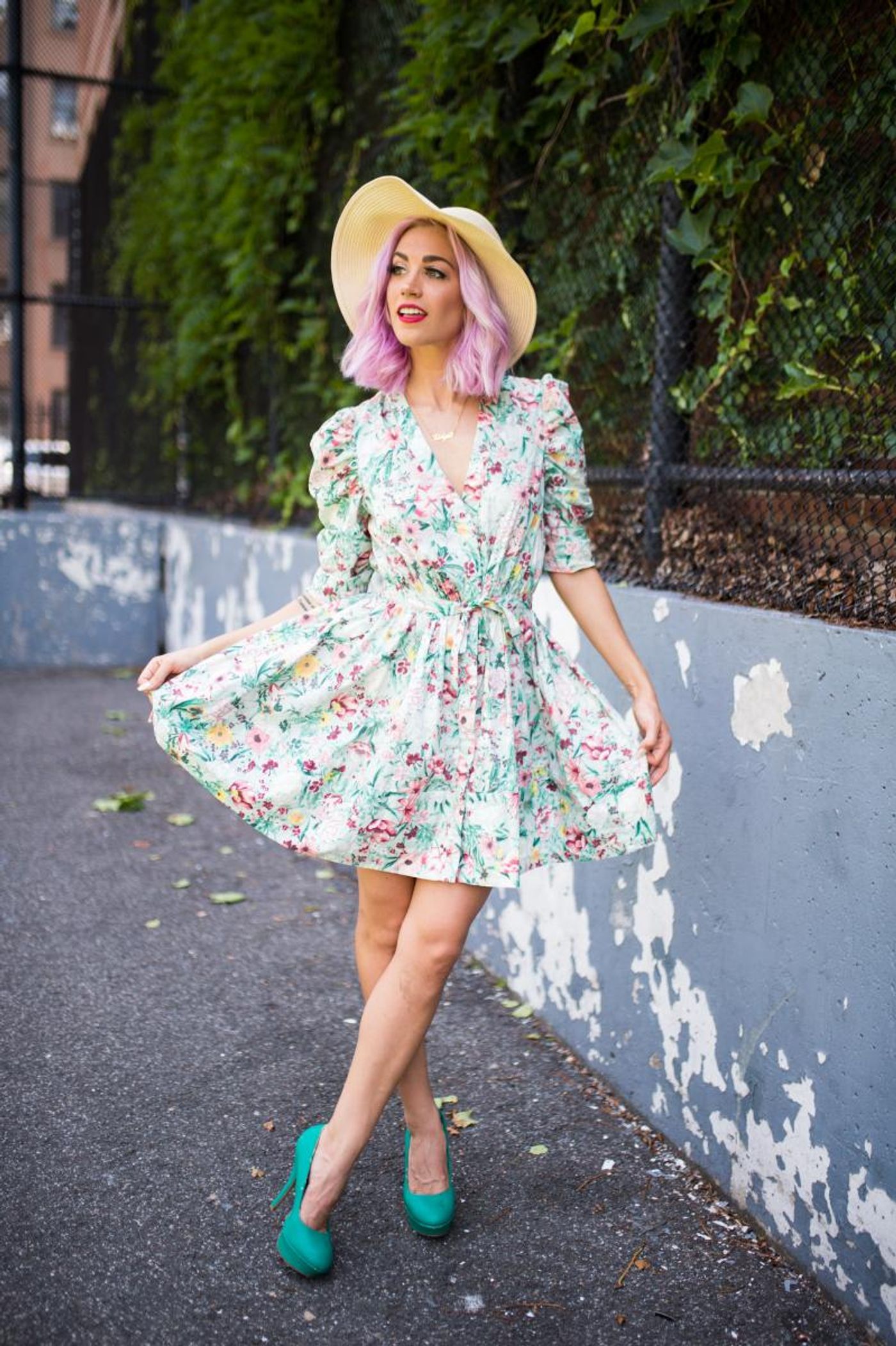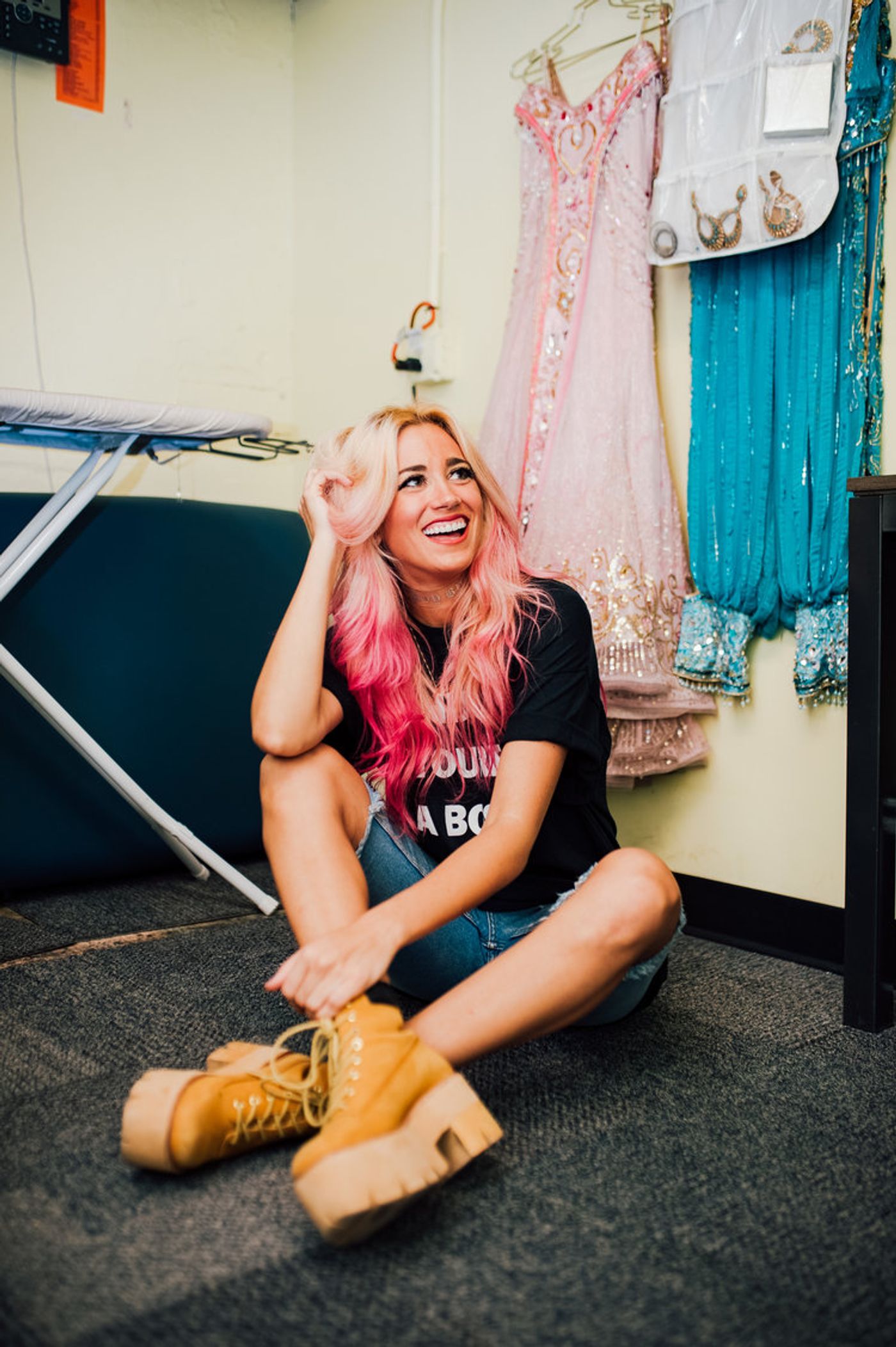She Believed She Could: A Dresser's Day with SUMMER's LJ Wright

Six days a week, a hour or so before the stars of Summer: The Donna Summer Musical sign in on the callboard, dresser LJ Wright arrives at the Lunt-Fontanne Theatre to help lay the groundwork for the day's show(s). By the time Tony-nominated star Ariana DeBose arrives, Wright has set up her costumes and is ready to assist with any other prep the actress needs. For most audience members, Wright is one of the invisible hands they don't even think about. For industry professionals, Wright is among the group that holds a show together.
Wright's path to 46th Street has been made up of a little bit of luck and a lot of hard work. Like many theatre professionals, her passion began in high school, where she did "a little bit of everything," as so many of us remember doing. When college rolled around, though, she found herself a bit adrift, torn between theatre and art.
"One of the administrators told me that musical theatre is kind of the world where all of those different arts are married... you can do design, you can be involved in music, you can learn about history," she explains. From there, she began juggling fashion internships, small-scale theatre work, and survival gigs.
"I got a pretty slow start doing theatre. I started doing, like, off-off-off Broadway shows!" But all those little jobs soon paid off in the form of connections - something Wright credits with getting her foot in the door. When an off-Broadway show's costume designer came into her orbit, she found herself assisting him, then working as a dresser off-Broadway for the next two years before Broadway came calling with The Curious Incident of the Dog in the Night-time.
It was her job on Aladdin, however, that launched Wright into the next steps of her career. As dresser to "Princess Jasmine" Courtney Reed, Wright not only formed a tight friendship during the show with Reed and fellow dresser Teale Dvornik, but found the chance to spark her creativity once again.

"[The work] gets really repetitive, doing the same thing eight times a week, and I think, sometimes, you don't feel like your creative juices are being used... you can lose a little bit of the joy in that." That being said, Wright emphasizes how grateful she is for the relationships in the industry and for the joy of working with costumes ("I love getting to play with pretty costumes," she laughs). And with the "amazing bond and community" that she found at Aladdin, Wright also found a new avenue for creativity: Gagged Chokers, the accessory brand she co-founded.
"It was kind of crazy how the whole thing happened!" she recalls. "We [Reed, Dvornik, Wright, and Abby DePhillips] were really into this new phase with chokers, and Courtney just starting making them on her own... she would run by our quick-change booths and throw chokers at us!" What began as a playful hobby between friends soon turned into a potential business as fans on social media began asking about the chokers the four women were wearing in photos, and the rest unfolded rapidly. It became a regular occurrence for the group to stay after shows or meet up afterwards to hand-make the chokers, a creative break from the repetition of their daily jobs.

Although the daily tasks of a dresser may be invisible to audiences, they're not easy by any stretch. Wright usually arrives at the theatre an hour or so before the cast, and twice a week, she and the other wardrobe staff come in during the day to do upkeep and repairs. During the shows, she's responsible for everything from having costume pieces ready for actors to waiting in the wings for quick changes. As a lead dresser, Wright notes, her responsibilities are a little more personalized: fewer cues throughout the show, instead being at the disposal of a single performer for the duration of the show.
Technical theatre isn't nearly as glamorous or visible as onstage careers, but there's a wide swath of "theatre kids" who would much rather style a wig or figure out the mechanics of a turntable than do a tap number. The one thing they all have in common: the exciting and terrifying fact that there's really no one path to the top.
"Every dresser has had a different story... [my friend] basically came to the city and booked a huge Broadway show, and I worked for like three years to get to Broadway. It really depends on who you meet and who comes in your path." Success, as Wright points out, is often an amalgamation of hard work, talent, and sheer luck - not just one or the other. And that holds true not just for onstage work, which has always gotten the lion's share of attention and analysis, but for backstage work as well.

With her playful, cool-girl social media, her affiliation with some of the most popular shows on Broadway, and her deeply fabulous pastel-colored hair, Wright has become something of a role model for the young theatre fans who populate social media, and she hopes she can use that to do some good. Above all, she emphasizes how important connections and community are. When I ask her what advice she would give to young people aspiring to theatre careers, she doesn't hesitate.
"Work really hard, don't be afraid of hard work, and you never know who's in your path in the moment... Treating people with respect and care, no matter what hierarchy they're in, that's huge." It's simple words of advice that ring true because of that very simplicity. Theatre, more than anything, is a community, and respecting and embracing one another is something that will never go out of style.
Videos


